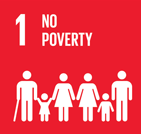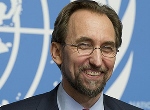Social Watch News
|
Source: . Published on Tue, 2017-03-07 17:43
Ženám v Česku hrozí chudoba mnohem víc než mužům. Nejvíc ohrožené jsou samoživitelky s dětmi a seniorky, které zůstaly samy. Velký problém dál představuje i násilí vůči ženám. Výsledky výroční zprávy o rovnosti pohlaví zveřejnila v úterý česká koalice mezinárodní sítě Social Watch při příležitosti Mezinárodního dne žen. |
| Published on Fri, 2017-03-03 00:00 |
Published on Thu, 2017-03-02 17:52
In the framework of its critical engagement in the 2030 Agenda, ANND launched an effort to document national programs for the implementation of the Sustainable Development Goals (SDGs) and socio-economic reform initiatives in the Arab region. This effort takes the form of national assessment reports and seeks to check if such implementation is made within a comprehensive rights-based development strategy, adopted with an inclusive, participatory and transparent approach. The assessment reports link between monitoring and evaluation by Civil Society Organizations (CSOs) of the implementation of Agenda 2030 and other similar human rights monitoring mechanisms. They shed light on the necessity to adopt an inclusive social dialogue for policy making at the national level. With the limited resources available, the reports shall be made on a few countries (namely Jordan, Egypt and Morocco) and shall focus on 3 SDGs only: |
Published on Thu, 2017-03-02 15:18
The ‘financialization of housing' is one of the greatest challenges to the right to adequate housing, with housing now being valued as a commodity rather than a human dwelling, a United Nations rights expert has charged. This admonishment came in the latest report by the UN Special Rapporteur on the right to adequate housing, Ms Leilani Farha (from Canada), which was presented to the Human Rights Council on Wednesday. The Human Rights Council is currently holding its thirty-fourth regular session here from 27 February to 24 March. |
| Published on Fri, 2017-02-24 19:31 |
Published on Fri, 2017-02-24 08:27
The current model of UN development assistance—operating country by country, and issue by issue, with priorities heavily driven by individual donors and their interests—is no longer fit for its intended purpose. The ambitious vision of the 2030 Agenda for Sustainable Development challenges the UN development system to fully respond to the inextricable links across countries and among social, economic and environmental concerns. This is not just an issue of greater efficiency and effectiveness within existing arrangements. It is a question of how the UN development system can meet the high demands of new commitments aimed at transforming the course of development so that it is equitable, sustainable and aligned with human rights, and remains within planetary boundaries. |
Published on Thu, 2017-02-23 09:30
Austerity policies have all too often gone hand-in-hand with undermining economic, social and cultural rights, while at the same time increasing inequalities in income and wealth within the European Union and its member States. This is one of the main conclusions highlighted by Juan Pablo Bohoslavsky (from Argentina), the Independent Expert on the effects of foreign debt and other related international financial obligations of States on the full enjoyment of all human rights, in his report (A/HRC/34/57/Add.1) to the UN Human Rights Council, which meets here from 27 February to 24 March. |
Published on Thu, 2017-02-23 08:20
The sheer size and scope of corporate power, when compared to nation states, can be difficult to comprehend. Research shows that 63 per cent of the top 175 global economic entities are transnational corporations, not countries. Up until now, the ability to sue corporations for human rights violations and environmental damage has depended on national governments’ capacities, political will, and resources to pay the exorbitant amounts of money to sustain such international lawsuits, to hold corporations accountable and demand compensation. |
| Published on Fri, 2017-02-17 00:00 |
Published on Thu, 2017-02-16 20:00
The United Nations Human Rights Office has launched an appeal of nearly US$253 million in extra-budgetary funding for its work programme in 2017, with the UN High Commissioner for Human Rights lamenting that his Office is "dramatically and chronically underfunded". The UN Human Rights Office described this extra-budgetary funding as its most ambitious funding appeal yet, and that it would be in addition to the UN regular budget funding of US$107.56 million that is provided to the Office. |
SUSCRIBE TO OUR NEWSLETTER









